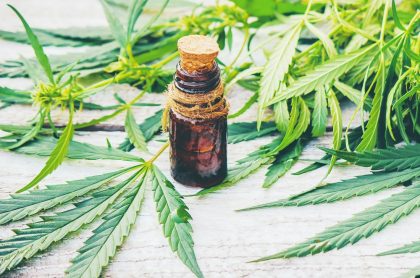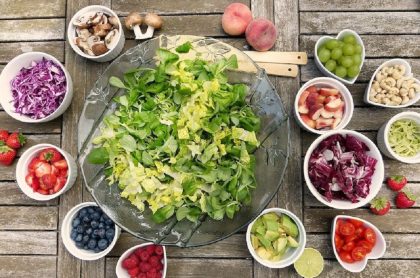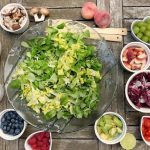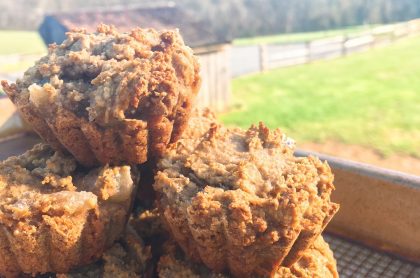Ensuring your child gets optimal nutrients (Part 2)


Now that we’ve covered the macronutrients, we can delve into the world of micronutrients: vitamins and minerals. If macronutrients are the brawn, micronutrients are the brains. Without them, the body cannot function. Over-deficiencies of vitamins and/or minerals, such as that seen in scurvy (vitamin C deficiency), are rare in our modern developed society, but subclinical deficiencies are quite common. Making sure your child gets all of his vitamins and minerals will give him a great head start in life, and eating a whole foods (preferably organic) diet will ensure this.
Vitamins
Vitamins have diverse roles in the body. They function as antioxidants, hormones, immune-mediators and coenzymes, which are helper molecules that facilitate chemical reactions. They come in two classes: water-soluble and fat-soluble.
Water-soluble vitamins include the B vitamins (B6, B12, riboflavin, thiamin, biotin, pantothenic acid, niacin, folate), and vitamin C. Fat-soluble vitamins include A, D, E, and K. Water-soluble vitamins cannot be adequately stored by the body and should therefore be acquired daily. For this reason, they are found in a wide variety of food. The fat-soluble vitamins can be stored in the body, though they still need to be consumed daily as well to maintain stores.

One vitamin of particular importance that is difficult to obtain from diet alone is vitamin D. Currently considered more of a prohormone than a vitamin, vitamin D is synthesized by cholesterol in the skin from the sun. It is involved in numerous activities in the body, including immune system regulation, maintaining healthy bones and teeth as it is required for calcium absorption and utilization, cardiovascular health, mood, and cancer protection. Though food is not the main source, it can still be found in fatty food, such as oily fish, raw milk, and canned salmon that contains the bones. The best way to obtain vitamin D is through getting outside in the sunshine for at least 15 minutes per day with at least 25% of your skin showing.
Minerals
Minerals are inorganic molecules equally important in maintaining your child’s health. Once again, a diet rich in whole fruits and vegetables, healthy fat and protein, and low in processed food ensures adequate intake of minerals, though a multivitamin/mineral is still encouraged. A few minerals of particular importance for growing kids are highlighted below:
Calcium: Necessary for nerve transmission, hormone production, and bone/teeth health. It is needed for muscle contraction. Deficiency signs include nervousness and insomnia, muscle cramps and tremors, joint pain, and irregular heartbeat. Organic, raw dairy products are a great source, but dark green leafy veggies, almonds, chia seeds, pumpkin seeds, sardines and walnuts are also great sources.
Magnesium: This tends to be the second most deficient mineral in both children and adults, behind zinc. Like calcium, it is needed for maintaining strong bones and teeth. It is also a muscle relaxant, and those deficient may have a difficult time staying asleep or sleep restlessly, may experience constipation, muscle twitches and cramps (including menstrual cramps), anxiety, nervousness, and headaches. Green leafy veggies, pumpkin seeds, sesame seeds, and sunflower seeds are all good sources.
Iron: Iron is needed to manufacture hemoglobin, the oxygen-carrying protein of red blood cells. Children need more iron because of their expanding blood volume. Lack of iron is called anemia, symptoms of which include fatigue, lethargy, and weakness. The best sources of iron are red meat, liver, and eggs, though vegetarian sources such as pumpkin seeds, blackstrap molasses, chia seeds, almonds and spinach are good too. Vitamin C aids in the absorption of iron, so including vitamin C rich foods such as tomatoes, red peppers, and citrus fruits will increase iron uptake.
Zinc: This is a vitally important nutrient for children and it is the most often deficient. It is needed for DNA replication, growth, energy production, immune regulation, hormone synthesis, and taste/smell. Picky eaters are often low in zinc. Another sign of deficiency are white lines on the finger nails. Children deficient in zinc may also demonstrate a multitude of cognitive difficulties, stunted growth and development, and susceptibility to infections. Good food sources include liver and animal protein, the best of which being oysters, pumpkin seeds and other nuts/seeds.
Vitamin and Mineral Check
Check your child’s intake of vitamins and minerals by answering the questions below. Does your child…
- eat fewer than five servings of fresh fruits and veggies daily, excluding potatoes?
- eat fewer than one portion of a dark green vegetable daily?
- eat fewer than three portions of fresh or dried tropical fruit per week?
- eat seeds or seed oils, such as pumpkin, sunflower or tahini, or unroasted nuts less than three times a week?
- typically not take a multivitamin or mineral supplement?
- usually eat white bread, rice or pasta instead of brown or whole grain?
- suffer from anxiety, depression or irritability?
- suffer from muscle cramps?
- have white marks on two or more fingernails?
- seem disconnected and find it difficult to relate or communicate?
If you answer ‘yes’ to five or more of these questions there is a good chance your child is not getting enough vitamins and minerals
Resources
Optimum Nutrition for Your Child; Patrick and Debra Colson
Feeding Your Child for Lifelong Health; Susan B Roberts and Melvin B. Heyman
Superimmunity for Kids; Leo Galland
Similar articles
-
Our top tips and tricks to improve your sleep over time
inWith COVID-19 running rampant, holistic health coach Kelly Cohen is here to show you ways to improve your sleep over time.
-
Is there a connection between cancer, diet and CBD?
inAs more and more Americans get sick with cancer, Holistic Cannabis Practitioner Erin Kenney looks at the connection between cancer, diet and CBD.
-
Post-partum recovery: a nutritionist gets back on track!
inPost-partum recovery is never easy, no matter who you are. Follow along this two-part series with nutritionist Stacey Gross on how she managed it.
More in Nutrition
-
Shouldn’t I be losing weight on a plant-based diet?
inLots of people who have recently transitioned to a plant-based diet have been asking, “shouldn’t I be losing weight on a plant-based diet?”
-
Your health destiny is not your child’s health destiny
inAre you thinking about having kids, but have poor health yourself? Do you want to give your child a better health destiny than your own?
-
Gut-friendly muffins when you’re stuck at home
inGut-friendly muffins can be just the thing to bake when you’re stuck at home during these difficult times.

















